The Boy Scouts In Russia - [10]
"I will look at him first," said Boris, with a smile. "But, Vladimir, I think your eyes are getting feeble. It is time you were sent to the place in the Crimea to rest, like the old horses that can no longer do their share of the work."
Vladimir bridled indignantly. But then a slow smile came over his face.
"Is it Ivan?" he asked.
"It should be," said Boris. "I shall know as soon as I see him."
The newcomer was waiting in the great hall. Boris, with Fred at his heels, got a glimpse of him; then without ceremony he ran down the polished staircase.
"So you have come at last!" he cried.
Ivan was a loutish German in appearance, and only his eyes betrayed the fact that he was not as stupid as he looked. At the sight of Boris he smiled, and the act changed his whole expression. But Fred thought he had never dreamed of so splendid a disguise. This man, he guessed, must have come many miles through Germany, in a country where the closest possible watch was being kept for spies, and for all, indeed, who might even be suspected of espionage. And it was easy to see how he had been able to do it. Fred knew that he must be a Russian. Yet in every detail of his appearance he was German. His clothes, his bearing, his every little mannerism, were carefully studied. Fred guessed that this was no servant, but a secret agent of much skill and experience. He was to learn the truth of his surmise before many days had passed.
"Ivan Feodorovitch!" said Boris. "So you really got through! Have you brought the-"
He stopped at a forbidding look in the man's eye. For a moment he seemed to be puzzled. Then he understood that it was the presence of Fred, a stranger, that was bothering Ivan.
"Oh!" he cried, with a laugh. "Ivan, you may speak before this stranger as freely as before me. Let him be a stranger to you no longer. He is my cousin from America-the son of Marie Feodorovna, who went away to be married before I was born!"
Fred was not prepared for what followed. There was an outcry, first of all, from the half dozen servants in the great hall. They crowded forward curiously to look at him. And as for Ivan, he stared blankly for a moment, and then plumped down on one knee and, to Fred's unspeakable embarrassment, seized his hand and kissed it.
"He and all of them are old, old retainers of our house," Boris explained swiftly. "To them one of our blood ranks second only to the Czar himself. My father saw to it always that here we were surrounded only by such faithful ones. These people and their ancestors before them have been in the service of us and of our ancestors for many, many generations-since before the freeing of the serfs, of course."
It was Boris who brought Ivan back to the errand that had caused his sudden appearance.
"Have you brought the parts for the wireless?" he asked. "It was as my father foresaw. The first thing the Germans did was to come here and render the installation useless, as they supposed."
"It need not remain useless," said Ivan. "Everything needful I have brought. The station may be working by to-night. Except that there can not be anything worth sending for a few hours, it might be set up now. Better not to use it and risk betraying our secret until there is real need of it."
Boris turned to Fred to explain.
"We have spies all through East Prussia, and through Galicia and Silesia, too, of course," he said. "They can find out a good many things of interest and importance to our army. But it is one thing to obtain such knowledge and quite another to find some means of sending it back to our people. We hope, if we are not sent away from here too soon, that we can make this house very useful that way. It stands high, you see, and we have a very powerful wireless. The Germans knew this and they thought they had made it useless."
"Oh, that's great!" said Fred. "Perhaps I can help, too, because I can send by wireless. I don't know whether I would be much good with the Continental code, because I've learned only with Morse. But I might be of some use."
"Another operator will be of the greatest use," said Boris. "I know a little, a very little, about it. And there is a man here. But I am afraid that they will come very soon and take every man who is of fighting age away."
"But your men aren't soldiers!"
"Most of them have served their term in the army. But, even if they had not, the Germans would take every able-bodied man. That is all right. We are probably keeping back all Germans who might go home and go into the army, and all the other countries will do the same with men of a nation with which they are at war."
"Vladimir has all that I brought," said Ivan, breaking in now. "As for me, I must go again."
"Go? Now? Aren't you going to stay?"
"No! I have much to do. I may be back. But if I return, I shall come through the cellar-you understand? There are strange movements of troops in this region that I cannot understand at all. There are far fewer soldiers here than I thought there would be. I have not been able to find traces of more than a single corps of Germans-and we had expected them to have three or four, at the very least, concentrated in East Prussia as soon as the war broke out. At Augustowo they were even expecting an attack."
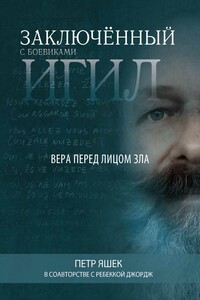
10 декабря 2015 года Петр Яшек прибыл в аэропорт столицы Судана города Хартум, чтобы вылететь домой, в Чешскую Республику. Там он был задержан суданской службой безопасности для допроса о его пребывании в стране и действиях, которые, в случае обнаружения, поставят под угрозу преследуемых христиан, с которыми он встречался. После задержания, во время продолжительных допросов, Петр понял, что в ближайшее время ему не вернуться к своей семье… Вместо этого Петру было предъявлено обвинение в многочисленных особо тяжких преступлениях, и он был заключён в тюрьму на 445 дней — только за то, что предоставил помощь христианам, преследуемым правительством Судана.
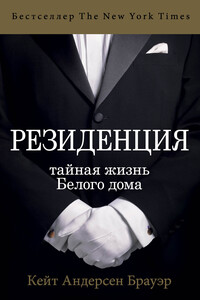
Повседневная жизнь первой семьи Соединенных Штатов для обычного человека остается тайной. Ее каждый день помогают хранить сотрудники Белого дома, которые всегда остаются в тени: дворецкие, горничные, швейцары, повара, флористы. Многие из них работают в резиденции поколениями. Они каждый день трудятся бок о бок с президентом – готовят ему завтрак, застилают постель и сопровождают от лифта к рабочему кабинету – и видят их такими, какие они есть на самом деле. Кейт Андерсен Брауэр взяла интервью у действующих и бывших сотрудников резиденции.
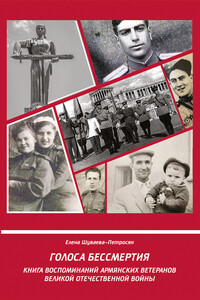
Книга «Голоса Бессмертия» Елены Шуваевой-Петросян – сборник очерков, основанных на воспоминаниях ветеранов Великой Отечественной войны из Армении. Она повествует об эпизодах героических биографий фронтовиков, которые, завершив ратный труд, продолжили служить Отечеству в мирное время. Это, по сути, воспоминания немногих доживших до 75-летнего юбилея Победы участников Великой Отечественной войны, призванные стать частью общей памяти о подвиге армянского народа, его вкладе в общее дело победы над фашизмом.
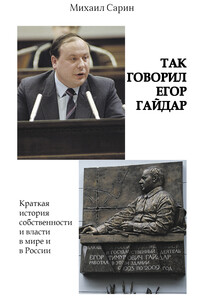
Миллионы россиян знают (или им кажется, что знают), что Егор Гайдар делал. Кто-то за это его благодарит, кто-то проклинает. Но мало кто знает, почему он делал именно так, что он при этом думал. А ведь все это изложено в его книгах. В своих работах он описал всю социально-экономическую историю человечества – от первобытных обитателей пещер до жителей современных мегаполисов. Особое место в его работах занимает, разумеется, Россия, ее путь на фоне мирового развития. И все, что он делал на практике.
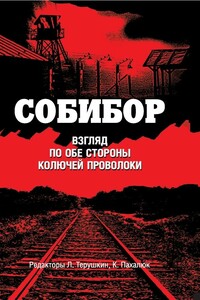
Нацистский лагерь уничтожения Собибор… Более 250 тыс. евреев уничтожены за 1,5 года… 14 октября 1943 г. здесь произошло единственное успешное восстание в лагерях смерти, которое возглавил советский командир Александр Печерский. Впервые публикуются последняя и наиболее полная версия его мемуаров, воспоминания многих соратников по борьбе и свидетельства «с другой стороны»: тех, кто принимал участие в убийстве невинных людей. Исследования российских и зарубежных авторов дают общий контекст, проливая свет на ряд малоизвестных страниц истории Холокоста.
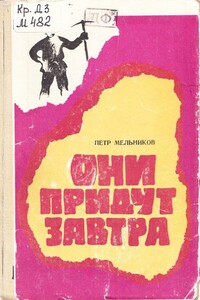
Это суровое документальное повествование не предназначено для легкого чтения. В нем любознательный читатель найдет для себя немало поучительного, узнает о том, как бывшие красногвардейцы, партизаны и чекисты, во главе с коммунистом В. П. Бертиным, при активном содействии обкома партии и правительства молодой Якутской республики, еще при жизни В. И. Ленина, открывали и осваивали золотоносные месторождения на Алдане, и как самые закаленные и упорные из них в составе первой Верхнеколымской геологоразведочной экспедиции высадились на берег Охотского моря и открыли золотую Колыму. Читатель узнает также о том, как старатели и якуты-проводники помогли Ю. А. Билибину, С. Д. Раковскому и П. М. Шумилову найти в жизни более верную дорогу, чем у их отцов, и стать патриотами своей социалистической Родины, лауреатами Государственной премии. Эта книга — о повседневном будничном героизме советских геологов и золотоискателей.